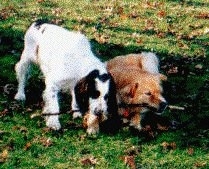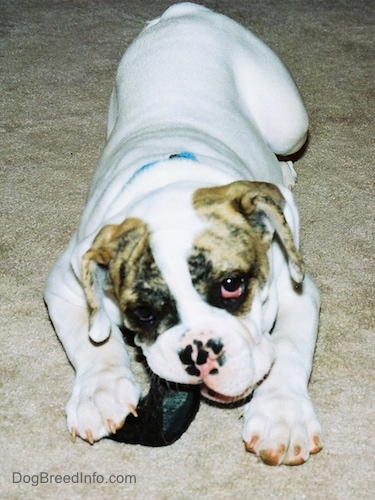
Note: if your adult dog is still chewing things up around the house it is most likely bored. Try giving it more exercise in the form of pack walks.
Puppies go through a teething stage from about four months to the age of ten months. They lose their baby teeth from about four to six months and their adult teeth begin to grow in at about six to ten months. It is important to allow your puppy to chew to help his teeth come in, however you need to teach your puppy what is OK to chew and what is not. During this time your puppy's teeth will feel very uncomfortable and the pup will want to chew on everything trying to relieve the discomfort. He is not chewing purposely to upset you, he is simply uncomfortable. Do not allow your puppy to chew or bite on humans as it will be setting yourself up for problems in the future. The best way to handle a teething puppy is, every time the pup chews on something he is not allowed to chew on take it away and immediately give him something he is allowed to chew on. To teach your puppy not everything is his to chew on, place things in front of him one by one that he is not allowed to have. If he begins to chew the item say, "Leave it" and direct him to an item he is allowed to chew on. Then stand near the off-limits object and do not allow the puppy to go near it. Keep giving the bone, or other object he is allowed to have, back to him. If you simply yank the object from the puppy's mouth you may bring out the pup's prey drive, making the puppy that much more determined to get the object back again. Try redirecting his attention with another object such as food or using the "leave it" command as you slowly remove the shoe from his mouth and immediately give him a bone or other toy he is allowed to chew on. If you are not 100% sure you can get the object away from the dog without him running with it, try using a distraction such as a treat to redirect his attention away from off-limits objects. If he learns to run with something and you are not there to immediately stop him you will lose the battle. making it that much more difficult to train your puppy to leave things alone.
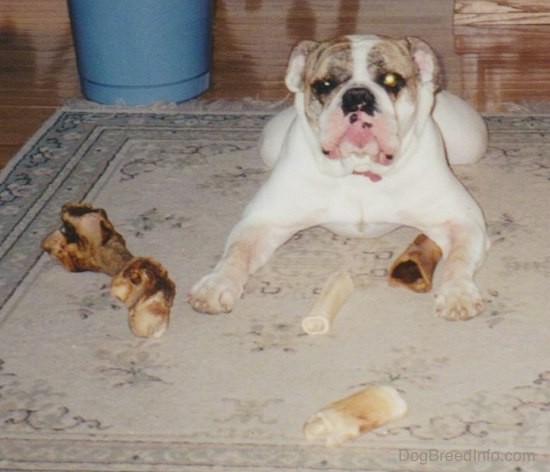
Closely watch your puppy. Puppies chew on whatever they can get their mouths on. Be sure to provide a variety of bones/toys to choose from. If you provide your pup with a toy or bone and he chews it apart into little pieces be sure to take those pieces away from him. Keep your puppy safe and use your best judgment as to what is safe to chew and what is not.
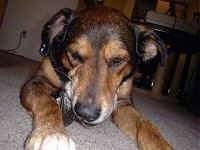
Puppy proof! Before you bring the new puppy home you should remove all items that your puppy can chew on. You should take the same safety precautions with your new puppy as you would take with a human toddler.
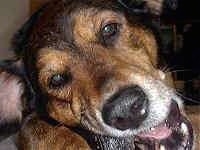
Remove plants. Make sure electrical cords are out of reach. Pick up shoes and socks, and make sure there are no poisons or chemicals that your puppy can get his mouth on. If you have mouse traps or roach motels, get rid of them. Remove any object the puppy could put in his mouth. If he can put it in his mouth, he can choke on it. There is nothing more terrifying than seeing your little helpless puppy choking.
Always confine your puppy in a safe area while you are away. His crate is the safest place. You can also use baby gates in the kitchen or bathroom, but only after housebreaking is completed.
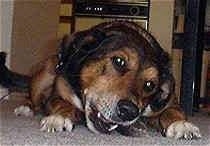
Make certain your puppy gets plenty of exercise to burn off energy. A bored puppy is a destructive and unhappy puppy.
If your dog destroys things when you leave it may just be a case of separation anxiety. Dogs also chew if they are lacking in mental and or physical exercise.
Written by Sharon Rose © Dog Breed Info Center® All Rights Reserved
